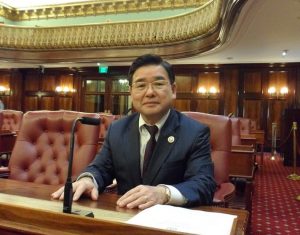
Peter Koo
June 4, 2018 By Christian Murray
Nearly one in four Chinese men who live in New York City smoke cigarettes and the Health Dept. has launched a campaign trying to get them to quit.
The Health Department announced today that 23 percent of Chinese men smoke, the highest figure among all ethnic groups in the city. The department said that 18 percent of whites, 17 percent of Latinos and 14 percent of blacks still smoke.
The city has starting running ads in Chinese-language newspapers and on Chinese language television announcing in both Mandarin and Cantonese that Chinese smokers can receive free quit-smoking medication and counseling from the Asian Smokers’ Quitline by calling 1-800-838-8917.
“We have made considerable progress in driving down the rates of smoking among adults, but Chinese men still have disproportionately high rates of smoking,” said Health Commissioner Mary Bassert in a statement. “We hope this campaign motivates Chinese men to quit smoking.”
The City said that the number of lung cancer deaths among Chinese men has increased by 70 percent in the past 15 years.
“These statistics plainly show that more outreach needs to be done to encourage Chinese males to quit smoking, and I am heartened to see the City of New York prioritizing the health and well-being of our community,” said Council Member Peter Koo in a statement.
Nearly 12,000 people are killed prematurely in New York through tobacco use, according to the health department. The City increased the minimum price of a packet of cigarettes on June 1 to $13.






